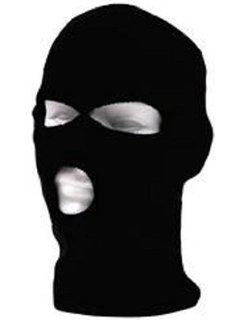He cleared $2,151, and got almost the same amount two weeks later from a Whidbey Island Bank in Mill Creek.
他搶走了2151美元。兩周后,他又從米爾快克的惠德貝島銀行搶走了幾乎相同數(shù)額的錢款。
This could work, he thought.
他想,這辦法可行。
So he devoted himself even more to the craft.
所以,他更加專注于打磨技藝。
A few robberies in, he had a nickname—the Cyborg Bandit, because detectives thought the knit mask was some kind of metal mesh—and a spot on a TV show, Washington's Most Wanted.
在幾起搶劫案中,他用了一個“電子土匪”的綽號,因為警探們認為這個織物面具是某種金屬網(wǎng),這是華盛頓一號通緝令節(jié)目中報道的。
Hathaway always tossed or burned the gloves, hoodie, and shoes he wore on a job, to eliminate DNA evidence
海瑟薇總是扔掉或燒毀他在搶劫中所戴的手套、連帽衫和鞋子,以消除DNA證據(jù),
and to be sure he didn't repeat an outfit and give police and bank employees something to look out for.
并確保自己沒有重復(fù)穿一套衣服,以免引起警察和銀行員工的注意。
Same with cars. He didn't ditch those, but he never used the same one twice.
汽車也是一樣,他沒有扔掉那些車,但他從來不開同樣的車。
After the first robbery he'd realized he didn't need to steal a vehicle;
在第一次搶劫之后,他意識到自己不需要偷車;
there was always an addict happy to lend out a car for a few hours in exchange for $100 or some dope.
總會有一個癮君子樂于把車借他用幾小時,以此換取100美元或一些毒品。
To confuse police, Hathaway changed disguises.
為了混淆警察,海瑟薇改變了他的偽裝。
The second one was, in retrospect, ridiculous.
第二套行頭,現(xiàn)在回想起來很荒唐。
He modified a T-shirt, cutting away the entire back so it was just the front hanging from the collar, like a janky homemade apron.
他改良了一件襯衫,把襯衫后背裁開,只是在前面從衣領(lǐng)上垂下來,就像一條自制的圍裙。

He cut someeyeholes into this smock mask and wore it under a button-down shirt.
他在這件罩袍上裁了很多小孔,下面還穿上一件紐扣式襯衫。
As he prepared to enter a bank, he'd pull it up and over his face. Police called him the Elephant Man Bandit.
當他準備進入一家銀行時,他會把罩袍拉上來,蒙在臉上。警察稱他為象人強盜。
The third and final mask was a kind of hybrid.
第三件,也是最后一件掩護是一種混合體。
Hathaway cut the sleeve off a T-shirt, made two eyeholes, and wore it on his forehead like a headband—which he could pull over his face as he entered a bank.
海瑟薇把T 恤衫的袖子剪掉,挖了兩個眼洞,把它像頭帶一樣戴在前額。當他進入銀行時,可以把它掛在臉上。
"It was definitely the best of the three," he recalls. It was easy to make and deploy, and he could pull it down around his neck on the way out, letting him walk away without looking suspicious.
他說,“這是三件里面最好的一個,簡單易做,使用也很方便。出銀行時,可以把它拉到脖子上,讓他在不引起別人懷疑的情況下離開。
Once, he thinks it was about 10 robberies in, the bank slipped a GPS locator in with the money,
他認為,在大約第10起搶劫案中,銀行員工把一個GPS定位儀塞進錢里。
but he found it while escaping and tossed it out the window of his car as he sailed down the freeway.
但他在逃跑時發(fā)現(xiàn)了定位儀,于是便在高速公路上行駛時把它扔出了車窗。
Another time, Hathaway failed to notice that a bank had security glass, and the woman behind it simply refused his demands.
另一次,海瑟薇沒有注意到銀行裝有安全玻璃,而玻璃后面的女員工拒絕了他的要求。
"She just stood there and shook her head at me," he says. He had no choice but to retreat—and fast.
“她只是站在那里向我搖搖頭,”他說。 他別無選擇,只能迅速撤退。
Then there was the time a woman sat in her car just outside a bank "breastfeeding her kid for like two hours," Hathaway recalls.
還有一次,一名女子坐在停靠在銀行外面的車里,給她的孩子喂了兩個小時的奶,” 海瑟薇回憶道。
"That was interfering with me trying to get this done." She finally left, and he robbed the bank at 5:57 p.m., three minutes before it closed.
“那干擾了我辦事。”她終于離開了,他在17點57分搶劫了銀行,三分鐘后銀行就關(guān)門了。


